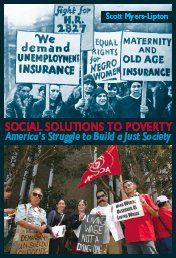International Day for the Eradication of Poverty
The US media didn't mention it, but October 17 was the UN's International Day for the Eradication of Poverty. It was noticed by the rest of world:
School children in Gaza, cricket fans in India and African church-goers have helped set a Guinness world record for "the largest number of people to 'stand up against poverty,'" U.N. officials said on Tuesday. The record was set when 23,542,614 people stood up ....
The "stand up" campaign was organized to promote the achievement by 2015 of a series of anti-poverty goals set at the Millennium Summit in 2000. It was timed to coincide with Tuesday's U.N. International Day for Poverty Eradication. [Reuters]Read more about the Millennium Development goals.
What did get some good coverage last week was the awarding of the 2006 Nobel Peace Prize to Bangladeshi economist Muhammad Yunus, founder of the Grameen Bank and "Banker to the Poor". WELL DESERVED!
An idea can change the world...Mr. Yunus implemented his idea and his actions have changed lives.What actions will you take today?

